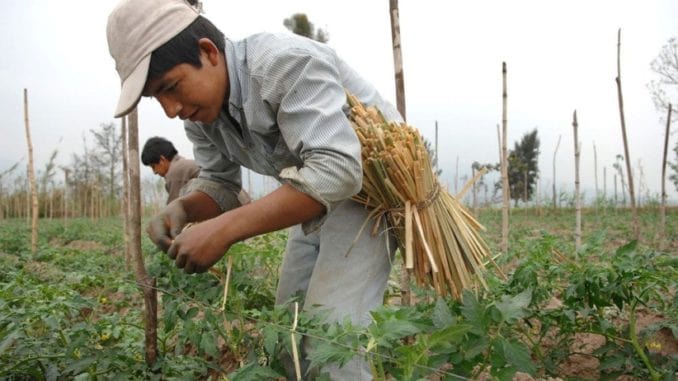
BUENOS AIRES – Argentine farmers have agreed to pay perpetual royalties when they replant genetically modified seeds made by companies like Monsanto Co., a deal that could allow farmers access to the newest biotechnology.
Farmers’ group Argentine Rural Society and the Argentine Seed Producers’ Association representing companies confirmed the agreement. The farmers’ new willingness to pay corporations royalties indefinitely is a stark reversal in Argentina, the world’s top soy meal and number three soy and corn exporter.
Argentina’s 1973 seed law allows farmers to use seeds generated from their harvests freely in later plantings, unlike their counterparts in the United States.
Their position spurred a bitter, years-long dispute with agribusiness companies and Monsanto in 2016 decided not to launch its new varieties of soybean seeds in Argentina.
Farmers and a group representing seed companies sent the agreement to the government in December, but the details were previously unreported.
“There is recognition that these (royalties) must be paid, and that we producers have to pay for this service,” Daniel Pelegrina, president of the Argentine Rural Society, said in an interview.
“This will give certainty to companies, which are going to release new technologies and be able to collect payment, and for producers, who need technology to increase our productivity.”

The deal could pave the way for a new seed law and the arrival of better seed technology at a time South America is increasingly challenging the United States’ dominance over global foodstuffs trade.
It comes more than a year after an effort by President Mauricio Macri to replace the seed law that failed in Congress due to disagreements over how long farmers should continue paying royalties.
“This agreement is the result of a year of dialogue between producers and developers, which has not happened before,” said Alfredo Paseyro, head of the Argentine Seed Producers’ Association, which represents Monsanto and dozens of other companies.
Macri’s administration has said a new law is needed, but it has not clarified whether it plans to send Congress a new bill this year. An Agriculture Ministry spokeswoman declined to provide details on the plans beyond saying they “are advancing.”
The deal indicates that the royalty rates will be set for three years after the original purchase of a seed, after which point the value of the payment could be adjusted, Pelegrina and Paseyro said.–MercoPress



